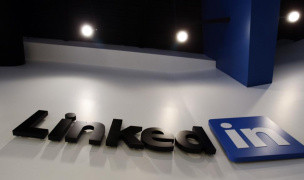 2 Terms
2 TermsHome > Terms > English (EN) > Cambodia bombing and protests
Cambodia bombing and protests
In January of 1969, Richard Nixon inherited a war that had humiliated his predecessor, and he immediately acted to restore American honor and win the war in Southeast Asia.
By attacking North Vietnamese bases in neighboring Cambodia, Nixon hoped to convince the enemy to withdraw from Cambodia and sign a ceasefire agreement.
Beginning on March 17, 1969, and continuing for fourteen months, Nixon sent American B-52s on 3,630 raids to Cambodia, dropping more than 100,000 tons of bombs.
The previous October, antiwar protests had involved more than 2 million Americans; therefore Nixon kept the bombings secret, and the White House informed the public that the B-52s were dropping their loads on South Vietnam. In November of 1969, Nixon announced that the nation would gradually withdraw its troops. But this decision created a problem for the flagging strength of the South Vietnamese forces, and so Nixon decided to authorize an invasion into Cambodia the following April. This failed to weaken the North Vietnamese, and only widened the war throughout Southeast Asia.
Responding to the incursion, as well as the recent discovery of the secret bombings, antiwar protests erupted across the country Then, on May 4, Ohio National Guardsmen shot four student demonstrators at Kent State University. Hundreds of American universities reacted with protest, hundreds more closed to avoid further violence and, soon thereafter, 100,000 Americans marched on Washington, DC to oppose the war.
By June of 1970, the Senate terminated the Gulf of Tonkin Resolution, and began to limit Nixon’s ability to prosecute a ground war in Southeast Asia. Nixon then intensified the bombing of Laos, renewed air strikes against North Vietnam and, later, aided an ARVN invasion into Laos. But the disastrous outcome of the invasion only eroded American confidence in the war further.
At the same time, William Calley was found guilty of murder for his actions at My Lai, and 1,000 Vietnam veterans testified to their own war crimes, discarding their war medals on the steps of the Capitol building. Meanwhile, the New York Times began to publish secret Defense Department documents, which had been stolen by Daniel Ellsberg, a former Pentagon employee. The summer of 1971 thus symbolized a high point of disillusionment with the war, yet Nixon’s plan to “Vietnamize” the war and gradually withdraw American troops eventually pacified domestic opposition.
In January of 1973, diplomatic talks in Paris produced a peace agreement. The United States accepted the demilitarized zone, and agreed to extricate its forces from the war.
American troops were withdrawn by the end of March, but the North Vietnamese troops remained in South Vietnam, and the fighting continued. Then, after North Vietnam announced continuing support for the communist rebels in Cambodia, the American bombings of Cambodia resumed. For six months, 250,000 tons of bombs were dropped, targeting some of the country’s most densely populated areas. Congress responded by banning the bombing of Cambodia and producing the War Powers Act, which directly limited the ability of future presidents to prosecute a war without a declaration from Congress.
- Part of Speech: noun
- Synonym(s):
- Blossary:
- Industry/Domain: Culture
- Category: American culture
- Company: Routledge
- Product:
- Acronym-Abbreviation:
Other Languages:
Member comments
Terms in the News
Billy Morgan
Sports; Snowboarding
The British snowboarder Billy Morgan has landed the sport’s first ever 1800 quadruple cork. The rider, who represented Great Britain in the 2014 Winter Olympics in Sochi, was in Livigno, Italy, when he achieved the man-oeuvre. It involves flipping four times, while body also spins with five complete rotations on a sideways or downward-facing axis. The trick ...
Marzieh Afkham
Broadcasting & receiving; News
Marzieh Afkham, who is the country’s first foreign ministry spokeswoman, will head a mission in east Asia, the state news agency reported. It is not clear to which country she will be posted as her appointment has yet to be announced officially. Afkham will only be the second female ambassador Iran has had. Under the last shah’s rule, Mehrangiz Dolatshahi, a ...
Weekly Packet
Language; Online services; Slang; Internet
Weekly Packet or "Paquete Semanal" as it is known in Cuba is a term used by Cubans to describe the information that is gathered from the internet outside of Cuba and saved onto hard drives to be transported into Cuba itself. Weekly Packets are then sold to Cuban's without internet access, allowing them to obtain information just days - and sometimes hours - after it ...
Asian Infrastructure Investment Bank (AIIB)
Banking; Investment banking
The Asian Infrastructure Investment Bank (AIIB) is an international financial institution established to address the need in Asia for infrastructure development. According to the Asian Development Bank, Asia needs $800 billion each year for roads, ports, power plants or other infrastructure projects before 2020. Originally proposed by China in 2013, a signing ...
Spartan
Online services; Internet
Spartan is the codename given to the new Microsoft Windows 10 browser that will replace Microsoft Windows Internet Explorer. The new browser will be built from the ground up and disregard any code from the IE platform. It has a new rendering engine that is built to be compatible with how the web is written today. The name Spartan is named after the ...
Featured Terms
United States
The U.S. was the sleeper-hit of the global economy in 2013. Marked by a steady trend of GDP growth rate increases, surging stock markets, deficit ...
Contributor
Featured blossaries
Marouane937
0
Terms
58
Blossaries
3
Followers
Fastest Growing Tech Companies
 7 Terms
7 Terms
Browers Terms By Category
- American culture(1308)
- Popular culture(211)
- General culture(150)
- People(80)
Culture(1749) Terms
- Physical geography(2496)
- Geography(671)
- Cities & towns(554)
- Countries & Territories(515)
- Capitals(283)
- Human geography(103)
Geography(4630) Terms
- General Finance(7677)
- Funds(1299)
- Commodity exchange(874)
- Private equity(515)
- Accountancy(421)
- Real estate investment(192)
Financial services(11765) Terms
- Radiology equipment(1356)
- OBGYN equipment(397)
- Cardiac supplies(297)
- Clinical trials(199)
- Ultrasonic & optical equipment(61)
- Physical therapy equipment(42)
Medical devices(2427) Terms
- Wireless networking(199)
- Modems(93)
- Firewall & VPN(91)
- Networking storage(39)
- Routers(3)
- Network switches(2)



